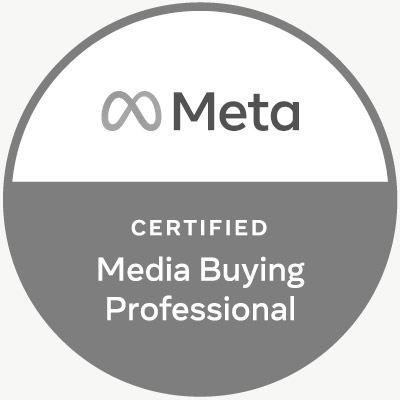Search engine optimization, or SEO, has been around for more than two decades, but its intricacies and ever-evolving strategy can make the process of optimizing your website intimidating – especially without an expert to help.
That’s where Results Repeat comes in.
We asked SEO experts at our sister company Results Repeat to break down some of the most frequently asked questions about optimization, strategy, and how search engine optimization can benefit your apartment community website.
Note: If any terms are unfamiliar to you, scroll down to the glossary section for more information.
Search engine optimization: The Basics
First, let’s start by defining SEO and why business owners, marketers and social media managers should care about organic search.
SEO is the process of increasing traffic (both quantity and quality) through organic results via search engines. The practice started in the mid-1990s with early search engines like Yahoo Search or Ask Jeeves. (Remember those? If not, let me go get my walker and escort you down to the glossary for more info.)
By the 2000s, Google began to take over as the premier search engine where it still reigns supreme today.
Early on, the best way to optimize your website for search was through on-page activities that included repeated keywords (like, an obnoxious amount of keywords), HTML tags, and links. This allowed early bot crawlers to scrape your website for the words included in the user’s search. The more times that keyword appeared on your website, the higher your page would rank. That practice is called keyword stuffing.
Though these elements are still in use today, search engines have become more sophisticated and favor more subtle keyword practices to encourage more engaging and relevant content.
How else has search engine optimization changed since the early days of Google? Let’s ask the experts.
Q: How has search engine optimization changed in the last 5 years?
Experts from Results Repeat agree that search engine optimization has become more intuitive in the last five years, with quality content and human experience ranking well above sites relying on dated practices like keyword stuffing.
“There are over 200 factors that go into the algorithm that determines where you rank in relation to your competitors,” said David Tischler, Director of SEO at Results Repeat. “Those factors also change frequently. In fact, Google makes thousands of changes to their algorithm each year.”
“SEO has evolved in a way that puts maximum focus on quality, human readable, and properly organized content.” – Justin Williams
“I feel it has gotten more content driven with authority. Google is looking not only for great content, but by authors/bloggers who are credible within their fields. … Having a doctor who is highly credible write a blog on your website about his industry will get your blog to rank a lot faster than if you wrote the same exact blog yourself.” – Justin Weleski
“The reason for so many changes is that Google wants to deliver the best possible results for any particular query. They also want to ensure a positive user experience or UX. In other words, websites that load fast, are secure, and provide relevant, updated information are going to rank higher than those that don’t.” – Tischler
Q: How do you expect search engine optimization to evolve in the future?
User experience is expected to remain a top priority for search engines, requiring websites to rely on expert analysis and quality content to answer user questions quickly and effectively.
“I expect that SCHEMA and other technical assets will become stronger variables within the big picture of SEO, with the goal of assisting search engines in further understanding the content of a site from a strict data perspective.” – Williams
“I believe there will be a continued focus on improving UX and that technology will change how we approach our daily tasks, but the standards of relevancy and a positive user experience will continue to be the most important factors.” – Tischler
Q: What is the biggest mistake you see others making when trying to improve their SEO?
Experts agree that one of the biggest mistakes you can make is assuming your one-time optimization will get you instant results. But the reality is that SEO is a process that requires consistency and attention.
“The biggest mistake I see is that people believe that SEO is a one-time optimization. They tend to optimize pages for keywords and adjust titles and descriptions, then set it and forget it. SEO is an ever-evolving set of guidelines and must be maintained just like a person’s health or performing regular maintenance on a vehicle. Keep in mind that Google literally makes thousands of changes to its ranking algorithm every year.” – Tischler
Q: How frequently should you re-examine your SEO strategy?
If you’ve had a social media account for more than a year, you know that algorithms change often. And the algorithms that power search engines are no different.
Results Repeat experts suggest you re-examine your search engine optimization strategy quarterly to analyze what is working and how it might change in the future. Though, it never hurts to keep an eye on your traffic and adjust as needed.
“SEO is a vital and ongoing part of driving traffic to your website. Changes should be monitored continually and adjustments should be made based on data from analytics as needed. Additionally it is important to stay informed about algorithm changes and ranking factors and to make changes as necessary.” – Tischler
Q: What are the best practices to include keywords, but avoid keyword stuffing?
Keywords are a huge part of any SEO strategy, but how and when you use them can make or break your campaign.
As search engine crawlers advance and focus on quality content as opposed to quantity of keywords, experts advise that your keyword strategy should center around readability, relevant topics, and key phrase variation.
“Google now uses artificial intelligence and semantics to understand context, it also understands that some phrases have similar meaning. For example, if you are optimizing for the term “senior care”, you can use the terms “elder care”, “care for my aging parents” or “elderly care” interchangeably throughout your content to create a better user experience.” – Tischler
Williams provided a few tips to help you produce content around your targeted keywords: “Establish topics and sub-topics based on your keywords while using good headings within your page content. Write content that users will find value in, and speak in a human tone.”
Q: How do you find the best keywords for your website?
A keyword’s search volume is one of the top indicators as to whether your content will be considered popular on search engines. Following these search volume trends when creating content will help increase your website rank.
Here are a few expert recommendations for free tools to find the best keywords.
“SEMrush keyword magic tool is incredibly valuable, and free to a certain point (there is a maximum amount of keywords you can research monthly), while Google Keyword Planner provides much of the same insight with no fees or restrictions.” – Williams
If you don’t want to use a specific tool, try searching for a popular keyword or phrase in the main Google search bar. Google’s auto-complete search function can help provide insights into search behavior.
Q: What’s the best piece of advice you would give to someone trying to improve their SEO?
“Research their competitors by way of visiting their website, viewing in SEMrush and also on Google. See what other websites appear and also google their CEO and see if they appear as guest bloggers and so forth. Also do industry research. What topics, advancements in tech and anything else that can be a nice topic to write about” – Weleski
“There are over 200 factors that Google uses to determine where you rank for a particular search query. Some of them have to do with on-page content, many others are very technical and require training to address. The best thing you can do is to understand your strengths and more importantly, where you need help. Then find an experienced professional to handle the aspects of SEO where you lack the required skill set.” – Tischler
“Write lots of good content based on topical hierarchies and make sure a healthy link structure for the content exists.” – Williams
Search Engine Optimization for Multifamily
Now let’s discuss some specifics related to multifamily apartment search.
Q: We know SEO strategies need to be examined and adjusted regularly. Do they change based on the season?
According to experts, SEO strategies can be seasonal depending on the industry. For multifamily, that can mean your keyword focus and content can shift as you enter your busy season, lease-up time, or as industry trends evolve.
“If you are promoting seasonal products and services, you’ll want to craft strategies in a way that supplements downtrend moments with unique perspective and reasons that content should be considered relevant within those moments.” – Williams
A seasonal SEO strategy can benefit multifamily properties targeting student housing, new communities, lease up properties, and amenity upgrades. Does your community have a large number of leases ending in July? Begin adjusting your SEO strategy in May to try to fill those soon-to-be vacant units faster.
Q: How can my apartment community get more local search traffic?
“Include information about the local area, what would make you want to live there, and include the town or neighborhood name in primary keywords.” – Tischler
Your Google Business Profile is also hugely important if you want to optimize your local search. Find more information, tips & tricks on how to improve your local SEO here.
Q: How can I fit all of these important keywords on my apartment community website?
“I think content marketing is highly underused by many multifamily operators and presents a great opportunity for an operator to grow their local SEO.” – Kevin O’Brien
As an expert in the multifamily space, you hold a wealth of knowledge and tips for renters and apartment seekers. By implementing a content marketing strategy like a weekly blog, and discussing topics relevant to your industry, you can open up new opportunities for SEO.
If you are considering starting your own blog, use the tips outlined earlier to compile a list of relevant keywords or phrases for your community, and brainstorm topics centered around those keywords.
The next step can be intimidating for anyone who doesn’t consider themselves a ‘writer,’ but I promise, it’s not as scary as it seems. Google rewards a conversational tone, so the easiest way to begin is to just start talking. Pretend you’re with a friend about the topic and write down a few paragraphs as a stream of consciousness. This will help you find your voice and tone and ensure it sounds natural.
Break your content up into bite-size chunks using subheads and make sure the content flows as naturally as possible.
Include keywords and phrases in your subheads by asking a relevant question, and answer it in the body copy below. When scraping your site, Google will ding headings before body copy, so if you include keywords in the larger text on your website, it can help boost your SEO ranking.
“Keywords in headings are given more weight, however it is important not to force it. If the heading doesn’t read well with a keyword in it, you’re better off using it within the body content. The best practice is to use a balanced approach to include your keywords, but you must keep in mind that user experience is the key. Write for potential clients, not for Google or the other search engines.” – Tischler
Search and user experience should be a top priority
Search engine optimization has come a long way since the mid-1990s. While Google’s modern approach to SEO makes the process slightly more complicated, in the end, it’s better for the user and the marketer. However, it takes time, care, and practice to fully optimize your website for the best organic results.
“Many of the factors that Google looks at are technical and require a skill set that can be complicated and takes time to learn,” Tischler said. “This is why a growing number of businesses have actually factored the cost of SEO in as a recurring marketing expense vital to maintaining growth. Marketing managers understand that SEO is a vital part of any marketing campaign and should be used in conjunction with social media, PPC and other marketing channels to provide the best possible ROI.”
If you’re interested in speaking with an SEO specialist for help optimizing your website, click below to get in touch.
Glossary:
Ask Jeeves: Ask Jeeves was an early question-answering search engine that was launched in 1996. “Jeeves” was your personal valet or butler who would fetch the answer to any question you could think of (in theory). Jeeves, however, was dropped from the name in 2006, and the search engine is now called ask.com. Here’s a clip of an Ask Jeeves television commercial from 1999. It’s ridiculous, we know.
Core Vitals: Core vitals are tools for developers to help determine the user experience for each web page. These data points include page loading performance, ease of interaction and visual stability of a page.
Crawl/Crawling: The process in which search engines read and discover your web pages and content. “Bots” powered by a complex algorithm collect information in order to provide the most relevant answers for each search query.
HTML Tags: HTML tags are snippets of embedded coding that provide a “reading map” for search engine crawlers. These tags help search engines categorize your content.
Index: Web indexing is the process of collecting and storing website data to provide the most accurate and relevant information to users.
Schema: Schema, or sometimes referred to as Schema markup, is a blueprint for search engines that outlines precisely what your content is trying to convey on the web page. By adding a small piece of code to your webpage from Schema.org, your website content will convert into structured, easy-to-read data for the crawler to read more efficiently.
UX: Shorthand for User Experience. In SEO terms, UX deals with how users interact with your website.
Web Crawlers/Spider/Bot Crawlers: These little ‘bots’ (or ‘spiders’ if you’re into the web analogy) are the tools in which search engines crawl your site to read and download your content. The crawlers index the information for future searches.
Yahoo Search: Yahoo was the first popular search engine on the web launched in 1995. Yahoo’s search function has changed hands many times over the years, including deals with Microsoft, Mozilla, Google and is now powered by Bing. This television advertisements from 1998 may seem familiar – that’s because Ask Jeeves produced a similar commercial while the two were locked in a fierce competition to be crowned top search engine.





